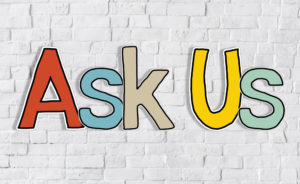SBA Offers Small Business Loans in Response to Coronavirus – COVID-19
The Coronavirus Preparedness and Response Supplemental Appropriations Act (the “Act”), passed with near unanimous support in both the House and Senate and was signed into law on March 6, 2020. The Act provides $20 million for the Small Business Administration (“SBA”) disaster loans program to support SBA’s administration of loans to entities financially impacted as a result of COVID-19 (coronavirus). Individual businesses may apply for up to $2 million of working capital loans.
There are 30.2 million small businesses in the United States, and they employ 47.5 percent of the nation’s workforce. The top three industries for small business employment are healthcare and social assistance, accommodation and food services, and retail trade. All of these sectors will be affected by the intensification of the coronavirus crisis. The last two have already been hit hard, as many states have ordered the closing of all “non-essential” businesses. Only groceries, gas stations, healthcare providers, drugstores, banks, and restaurants offering takeout or delivery services can remain open.
Under the Act, individual state governors must request access to the program, and once a declaration is made, information on the application process for disaster loan assistance will be made available to affected small businesses within the given state.
Small business owners in the following states may apply for a low-interest loan due to Coronavirus: Arizona, California, Colorado, Connecticut, Delaware, the District of Columbia, Florida, Georgia, Illinois, Indiana, Louisiana, Maine, Maryland, Massachusetts, Michigan, Montana, Nevada, New Hampshire, New Jersey, New Mexico, New York, North Carolina, Ohio, Pennsylvania, Rhode Island, South Carolina, Tennessee, Utah, Virginia, Washington, and West Virginia.
SBA Disaster Loan Requirements:
- Applicants must have a credit history acceptable to SBA.
- Applicants must show the ability to repay the loan.
- The maximum interest rate for this disaster is 3.75 percent.
- Collateral is required for all loans over $25,000. Note that a loan will not be denied due to a lack of collateral, but SBA will require the borrower to pledge collateral if it is available
- Loans can have a term of up to 30 years.
- Loans can be used to cover accounts payable, debts, payroll and other bills.
- The actual amount of each loan is limited to the economic injury determined by SBA, less other recoveries up $2 million.
- Applicants who have not complied with the terms of previous SBA loans may not be eligible.
- Economic injury disaster loans cannot be used to refinance long term debts.
- Small Businesses will apply for loans online and select “Economic Injury” as the reason for seeking assistance.
Coronavirus has had a devasting impact on most businesses in the U.S., and small businesses have been particularly hard. State and local governments have created resources for small businesses that can enable some of them to continue operations, and will help others continue to pay rent, and to pay employees, while complying with mandatory closure. The Act will aid small businesses in overcoming the temporary loss of revenue caused by COVID-19. More information can be found at https://www.sba.gov.
Obviously, the $20 million provided by the March 6 Act to the SBA will not be sufficient to compensate all owners of businesses affected by the coronavirus crisis. Many, perhaps most, cannot afford to close their doors for a month or more. They and their employees will suffer, and the communities they serve will suffer. More expansive aid is needed, and it’s needed quickly. Currently, the Senate Small Business Committee is working on proposals that would go beyond the Act’s provisions. In addition, the House and Senate are working together on a far more comprehensive relief bill that would provide up to $2 trillion to address the disaster in a variety of ways.
One emergency relief bill, called the Families First Coronavirus Response Act, was signed into law on March 18, but far from helping small businesses, it imposes further burdens on them by requiring them to offer paid sick leave to employees. The bill Congress is working on now will apparently offer assistance to the businesses themselves, though specifics are not yet known.
Small businesses are the foundation of the U.S. economy, the country’s lifeblood. They need help, and they need it immediately. In the coming days and weeks, we’ll keep you informed about what kind of aid small business owners can expect from their federal and state governments, and how they can access it.
This securities law blog post is provided as a general informational service to clients and friends of Hamilton & Associates Law Group and should not be construed as, and does not constitute legal advice on any specific matter, nor does this message create an attorney-client relationship.
Hamilton & Associates | Securities Lawyers
Brenda Hamilton, Securities Attorney
101 Plaza Real South, Suite 202 North
Boca Raton, Florida 33432
Telephone: (561) 416-8956
Facsimile: (561) 416-2855
www.SecuritiesLawyer101.com
U.S. Small Business Administration Offers Funding in Response to COVID-19







